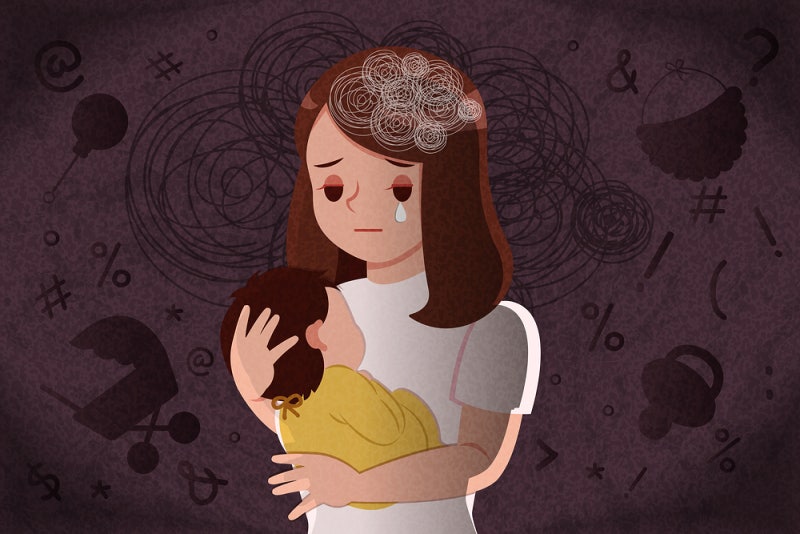Postpartum Depression: Timing, Duration, and Effective Solutions
Postpartum Depression: Timing, Duration, and Effective Solutions
Introduction
Postpartum depression (PPD) is a common condition that affects many new mothers after childbirth. It can occur at different times, last for varying durations, and significantly impact both mother and child. However, with the right strategies, postpartum depression is manageable and treatable. In this blog, we’ll explore when postpartum depression typically occurs, how long it lasts, and practical solutions to overcome it.
1. Timing of Postpartum Depression
Postpartum depression doesn’t always start immediately after childbirth; it can occur at various points in the postpartum period.
- Immediate Onset:
- For some mothers, PPD symptoms begin within the first few days or weeks after delivery, often starting as “baby blues” that intensify.
- Delayed Onset:
- Symptoms may emerge several weeks or even months after childbirth. This is common when sleep deprivation and stress accumulate.
- During Weaning:
- Hormonal shifts during the process of stopping breastfeeding can also trigger depressive symptoms.
Key Point: While most cases occur within the first 3 months postpartum, PPD can appear up to a year after childbirth.
2. Duration of Postpartum Depression
The length of postpartum depression varies depending on the individual and the treatment received.
- Without Treatment:
- PPD can last for months or even years if left untreated, significantly impacting the mother’s quality of life and family dynamics.
- With Treatment:
- Recovery typically begins within weeks to months once treatment is initiated, depending on the severity of symptoms and the support system.
Key Point: Early recognition and intervention can significantly shorten the duration of postpartum depression.
3. Symptoms to Watch For
Understanding the symptoms of postpartum depression can help identify the condition early and seek timely intervention.
- Persistent sadness, hopelessness, or feelings of emptiness.
- Difficulty bonding with the baby or feeling detached.
- Severe fatigue, irritability, or anxiety.
- Changes in appetite or sleep patterns.
- Thoughts of self-harm or harming the baby (in severe cases).
4. Effective Solutions for Postpartum Depression
Overcoming postpartum depression requires a combination of professional help, lifestyle adjustments, and support. Here are the most effective solutions:
A. Professional Help
-
Therapy:
- Cognitive Behavioral Therapy (CBT): Focuses on identifying and changing negative thought patterns.
- Interpersonal Therapy (IPT): Addresses relationship challenges that may contribute to PPD.
-
Medication:
- Antidepressants prescribed by a healthcare provider can help stabilize mood. Discuss options if you’re breastfeeding.
-
Postpartum Support Groups:
- Connecting with other mothers experiencing similar challenges can provide emotional support and reduce feelings of isolation.
B. Lifestyle Adjustments
-
Prioritize Sleep:
- Rest is essential for recovery. Share nighttime feedings with your partner or seek help from family or friends.
-
Healthy Eating:
- Incorporate mood-boosting foods rich in omega-3s, vitamins, and minerals, such as salmon, leafy greens, and whole grains.
-
Exercise:
- Light physical activity, like walking or postpartum yoga, can release endorphins and improve mood.
-
Self-Care:
- Dedicate time to yourself, whether it’s reading, taking a bath, or pursuing a hobby.
C. Build a Strong Support System
-
Partner Support:
- Open communication with your partner about your feelings and needs is crucial.
-
Family and Friends:
- Don’t hesitate to ask for help with childcare or household responsibilities.
-
Professional Caregivers:
- Hiring a postpartum doula or babysitter can provide much-needed relief.
D. Develop Coping Strategies
-
Mindfulness and Relaxation:
- Practice meditation, deep breathing, or journaling to manage stress and anxiety.
-
Set Realistic Expectations:
- Accept that it’s okay to not have everything under control. Focus on progress, not perfection.
-
Limit Social Media:
- Avoid comparing yourself to others online, as this can increase feelings of inadequacy.
5. When to Seek Immediate Help
In severe cases, postpartum depression can escalate to postpartum psychosis, a rare but serious condition requiring immediate medical attention. If you or someone you know experiences:
- Thoughts of self-harm or harming the baby.
- Hallucinations or delusions.
- Extreme confusion or paranoia.
Seek help immediately by contacting a healthcare provider or mental health hotline.
6. Long-Term Prevention and Recovery
Even after recovering from PPD, it’s important to prioritize mental health to prevent recurrence.
- Regular Checkups:
- Schedule follow-ups with your doctor to monitor mental health.
- Ongoing Support:
- Maintain a support network of family, friends, or a therapist.
- Focus on Wellness:
- Continue practicing healthy habits, such as exercise, balanced nutrition, and self-care.
Conclusion
Postpartum depression can occur at any time during the first year after childbirth and may last for varying durations depending on the individual. The good news is that it’s treatable with a combination of professional help, lifestyle changes, and support from loved ones. Recognizing the symptoms early and taking proactive steps can lead to a faster recovery and a healthier postpartum experience.
Call to Action
Are you or someone you know dealing with postpartum depression? Share your thoughts or questions in the comments below. Follow this blog for more insights into maternal health and parenting tips.





Comments